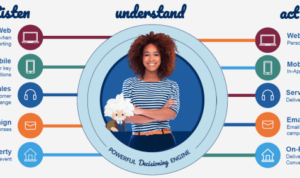Online Community Building sets the stage for creating thriving digital spaces, exploring key strategies, tools, and engagement techniques that drive success in the online realm.
Definition of Online Community Building
Online community building refers to the process of creating and nurturing a group of individuals who interact and engage with each other through digital platforms. This practice is crucial in the digital age as it allows people from all over the world to connect, share ideas, and support each other regardless of physical location.
Examples of Successful Online Communities
- The Reddit community, with its various subreddits catering to different interests, has provided a platform for users to discuss, share news, and seek advice.
- Facebook groups, such as parenting groups or hobby-focused communities, have connected like-minded individuals and facilitated discussions and support.
- Online gaming communities, like those on Twitch or Discord, have brought gamers together to play, chat, and build friendships.
Impact of Online Communities on Users
- Online communities provide a sense of belonging and support, especially for individuals who may feel isolated in their physical surroundings.
- Users can access a vast pool of knowledge, experiences, and perspectives from diverse individuals within online communities.
- Online communities can lead to the formation of real-life relationships and collaborations, extending beyond the digital realm.
Comparison with Traditional Community Building Methods
- Online community building allows for instant and global connectivity, breaking the barriers of physical distance that traditional methods may face.
- Traditional community building often relies on face-to-face interactions and events, while online communities can function 24/7 without time or location constraints.
- Online communities have the advantage of scalability, reaching a larger audience compared to traditional community building methods.
Strategies for Building an Online Community

Building an online community requires a strategic approach to engage and retain members effectively. By implementing the right strategies, you can create a vibrant and inclusive online space where members feel connected and valued.
Initiating and Growing an Online Community
- Define your community’s purpose and target audience to attract like-minded individuals.
- Create engaging content such as posts, discussions, and events to encourage participation.
- Promote your community through social media, email marketing, and partnerships to reach a wider audience.
- Encourage active participation by responding to comments, asking questions, and recognizing member contributions.
Key Elements for Fostering Engagement
- Establish clear guidelines and rules to maintain a respectful and positive environment.
- Provide opportunities for members to interact and connect with each other through forums, chats, or virtual events.
- Offer incentives such as rewards, badges, or exclusive content to motivate ongoing engagement.
- Listen to feedback from members and make adjustments based on their suggestions to improve the community experience.
Tips for Maintaining a Positive Community Environment
- Monitor discussions regularly to address any conflicts or inappropriate behavior promptly.
- Celebrate milestones and achievements within the community to foster a sense of belonging and accomplishment.
- Encourage diversity and inclusivity by welcoming members from different backgrounds and perspectives.
- Lead by example by demonstrating respect, kindness, and empathy in your interactions with members.
Tools and Platforms for Online Community Building
Building and managing an online community requires the right tools and platforms to facilitate engagement and interaction among members. Different platforms offer various features and functionalities that can impact the success of a community. Let’s explore some popular tools and platforms used for online community building.
Popular Online Platforms and Tools
- Social Media Platforms: Platforms like Facebook, Twitter, and Instagram are widely used for building online communities due to their large user base and easy-to-use interface. They allow for quick communication and sharing of content.
- Online Forums: Platforms like Reddit, Quora, and Discourse provide dedicated spaces for discussions on specific topics, making them ideal for niche communities with focused interests.
- Community Management Tools: Tools like Slack, Discord, and Community Cloud offer features like chat rooms, file sharing, and analytics to help community managers efficiently run and grow their communities.
Pros and Cons of Different Platforms
- Pros:
- Wide reach and visibility on social media platforms.
- Dedicated spaces for in-depth discussions on forums.
- Specialized features and tools for community management platforms.
- Cons:
- Potential noise and distractions on social media platforms.
- Limited audience reach on niche forums.
- Cost associated with premium features on community management tools.
Choosing the Right Platform
- Consider the type of community you want to build and the goals you want to achieve.
- Assess the features and functionalities offered by each platform to see if they align with your community needs.
- Take into account the preferences and habits of your target audience to select a platform they are likely to engage with.
Engaging and Retaining Members

To keep an online community thriving, it’s crucial to focus on engaging and retaining members. By creating valuable content and implementing effective strategies, you can ensure that your community remains active and dynamic.
Importance of Creating Valuable Content, Online Community Building
Creating valuable content is key to retaining community members. When users find content that is informative, engaging, and relevant to their interests, they are more likely to actively participate in discussions, share their own insights, and keep coming back for more. Valuable content can include informative articles, engaging videos, thought-provoking discussions, and interactive polls that encourage members to interact with each other.
Successful Engagement Strategies
- Host regular virtual events such as webinars, live Q&A sessions, or virtual networking opportunities to keep members engaged and connected.
- Create interactive challenges or contests that encourage members to participate and showcase their skills or knowledge.
- Encourage user-generated content by asking members to share their stories, experiences, or tips within the community.
- Utilize gamification techniques such as badges, points, or leaderboards to incentivize engagement and reward active members.
- Foster a sense of community by highlighting member achievements, welcoming new members, and facilitating discussions that promote collaboration and support.





